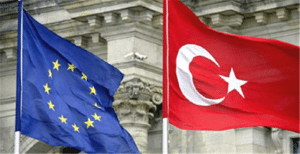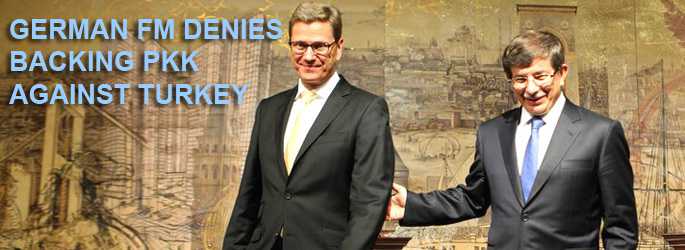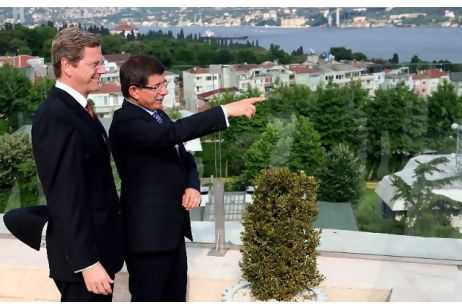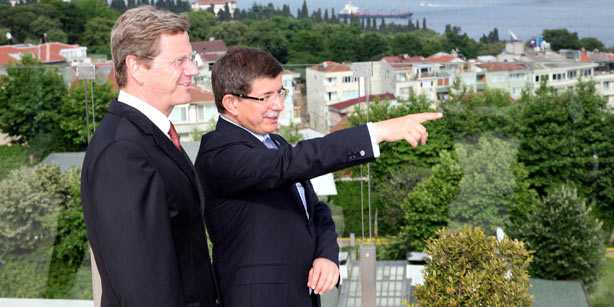Dorian Jones | Istanbul

The European Union’s annual progress report on Turkey’s bid to join its ranks, criticized Ankara over freedom of expression and treatment of its minorities. But Ankara has rejected the criticism and is voicing increasing frustration over what its sees as more prejudice on the part of Brussels. Rising tensions could come to a head over the island of Cyprus.
The Turkish government has dismissed out of hand criticisms made by the European Union’s annual progress report. The report criticized Turkey over its treatment of its minorities and media freedom. It highlighted the imprisonment of journalists.
According to human rights groups more than 50 journalists are currently jailed. However, Ergemen Bagis, Turkish minister for EU membership, says Brussels is out of touch.
“If you consider the report to be a photo of Turkey, what I can say is the model of the camera that took the picture of Turkey is an old model,” said Bagis. “I think its time for Europe to change the lens, and to focus better.”
The tough reaction is the latest sign of an increasing belligerence by Ankara towards Brussels, according to Semih Idiz, diplomatic correspondent for the Turkish daily newspaper Milliyet.
“Ever since France and Germany coming out against Turkish membership, I think we are at the logical conclusion of how things started three years ago,” said Idiz. “Nobody in Turkey is putting much investment into the idea that Turkey is going to be an EU member anytime soon. And at the moment Europe itself does not provide very inspiring image.”
The opposition of France and Germany have resulted in Turkey’s membership bid coming to a virtual standstill. The EU commissioner responsible for Enlargement, Stefan Fule, acknowledged Turkish frustrations but also raised concerns over a simmering crisis with Turkey.
“Turkey continues to be a key country for the European Union but accession negotiations have not moved on for more than one year,” said Fule. “There is a frustration on both sides. And I believe its the time to rebuild the momentum in the process and work for a renewed positive agenda in EU – Turkey relations. At the same time the commission remains worried about the tension between Turkey and Cyprus.”
The report criticized Ankara for its increasingly hardline towards EU member Cyprus. Last month Turkish warships were sent to the island in an ongoing dispute over Nicosia’s exploration for gas in its territorial waters. Ankara claims such exploration should be done in cooperation with the Turkish Cypriot administration which only Turkey recognizes. At a press conference Thursday, Turkish Foreign Minister Ahmet Davutoglu made clear Turkish displeasure over the criticism.
He said we see that there is a one sided perspective in EU when it comes to Turkey’s international work, primarily on the Cyprus issue and he said we feel seriously disturbed by this. He also said Turkey wants the EU and to give a strong message to the Greek Cypriot side and said it was of the utmost importance to Turkey.
But the EU report was not all bad news , it praised the government for judicial reforms and removing the army from politics. Ankara also drew plaudits as playing a positive role in “Arab Spring” countries. The German foreign minister Gudio Westerwelle, during a visit to Istanbul Thursday, stressed the important future role Turkey can play with the EU in the region.
He said there is no doubt that Turkey has a role as a bridge-builder and he said we want to take advantage of that together. And he said that’s why we [Germany] are glad that relations between our countries are so good. He said that Turkey can have a positive influence on the uprisings in the Arab world, where it can and wants to play such a key role.
Ankara increasingly sees itself as a regional power with global aspirations. But such largesse could prove a double edge sword to Europe. Former Turkish diplomat Sinan Ulgen warns that with Ankara’s aspirations for far more than EU membership, it is ready for a show down with Brussels over Cyprus.
“This transformation from almost a compliant member of the western community, making Turkey a full EU member, to a assertive ambitious regional power is what we are seeing today,” said Ulgen.
Observers warn Brussels could feel the full force of Turkey’s new assertiveness, with the simmering crisis over Cyprus expected to come to a head in the coming months.
via European Union Critical of Human Rights in Turkey | Europe | English.






